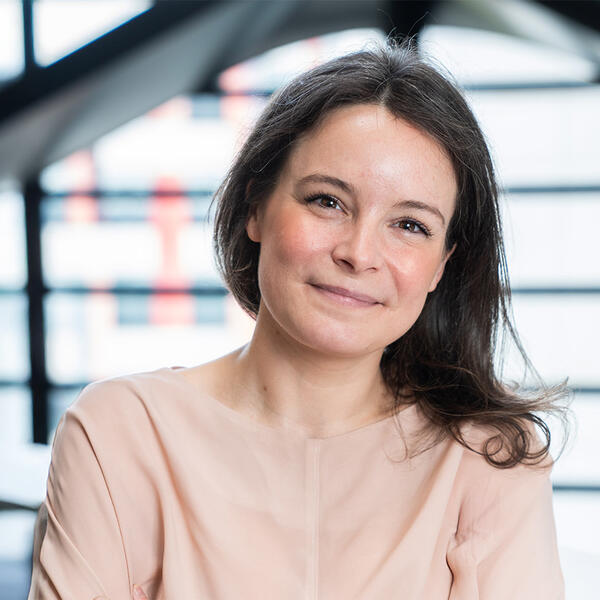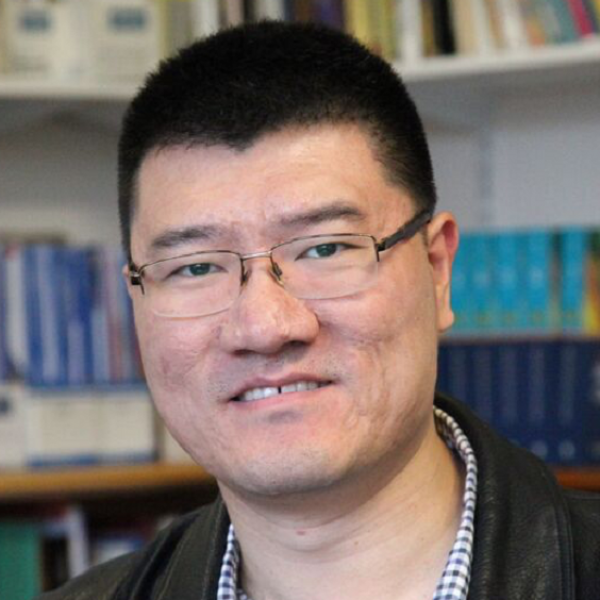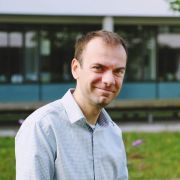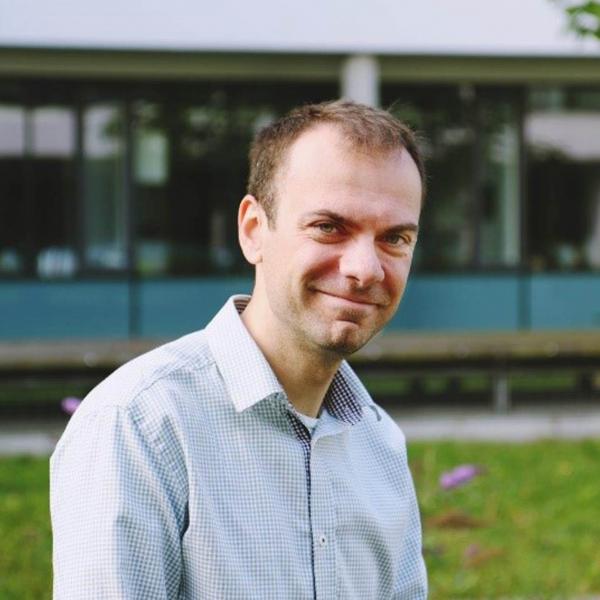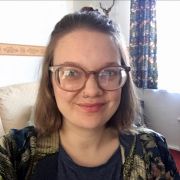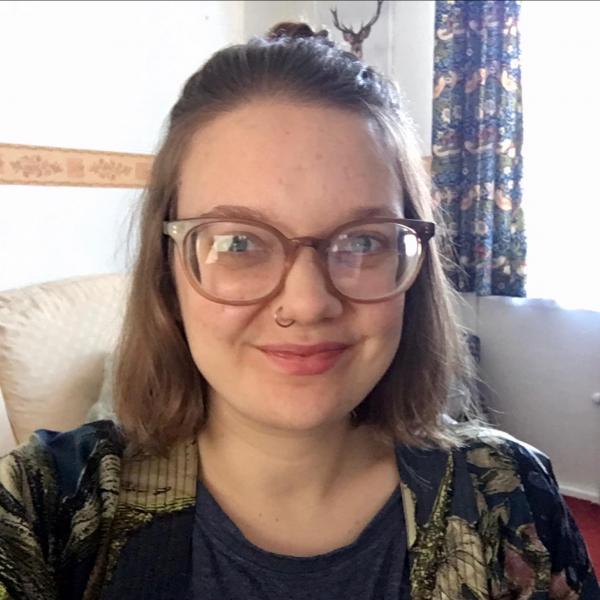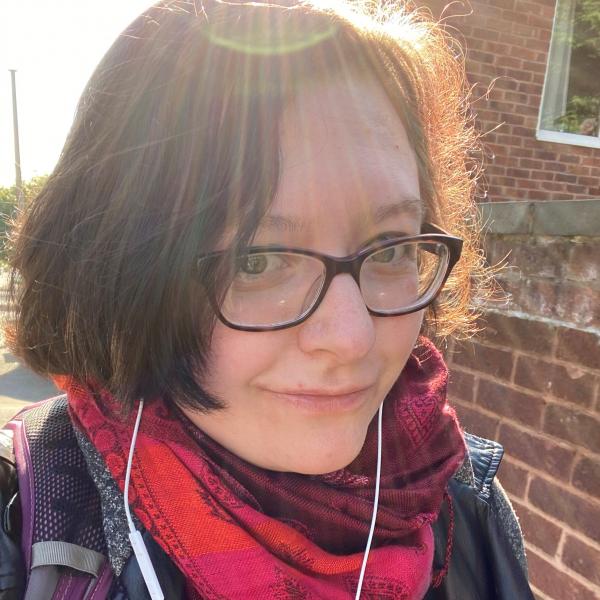We are very pleased to welcome:
Dr Alice Pyne
Department of Materials Science and Engineering
UKRI/MRC Rutherford Innovation Fellow and Lecturer in Soft Matter/Polymer
Alice is an MRC/UKRI Innovation Fellow and Lecturer in Soft Matter/Polymers.
Prior to this, she was an independent research fellow at the London Centre for Nanotechnology, UCL working closely with industry to develop high-resolution atomic force microscopy (AFM) technologies, able to resolve variations in the DNA double helix on a single molecule.
Alice was the speaker for our recent Insigneo seminar on ‘Base-pair resolution analysis of the effect of supercoiling on DNA structure and flexibility’ which was held online on 19 February 2021.
Professor Li Su
Department of Neuroscience
Professor of Neuroimaging
Professor Su was awarded a PhD in Computational Neuroscience from University of Kent in 2009.
After several years of postdoctoral research in the Institute of Psychiatry at King’s College London, MRC Cognition and Brain Sciences Unit and University of Cambridge, he was awarded a highly competitive Senior Research Fellowship from Alzheimer’s Research UK in 2017.
He leads the Artificial Intelligence and Computational Neuroscience Group which aims to combine innovative and original computational methods with the state-of-the-art brain imaging techniques such as MEG/EEG, 7T MRI and PET in understanding, detecting and developing treatments for neurological and psychiatric conditions. He uses AI inspired models as ‘virtual’ patients to capture cognitive dysfunctions.
Comparing the models with neuroimaging, clinical, VR and genetic data from real patients, one can obtain mechanistic understanding about not only ‘what’ has gone wrong in patients’ brains but also ‘why’ they experience the symptoms.
Ultimately, the models allow us to develop and test new drug treatments (in silico) before they are experimented on humans speeding up drug developments.
In 2020, he was appointed Professor of Neuroimaging at the University of Sheffield. He also holds a part-time PI position in Department of Psychiatry at University of Cambridge.
He leads the Alzheimer’s Research UK East Network Centre and is an elected Fellow in Clare Hall, University of Cambridge.
His research has been recognised through international awards including an International College of Geriatric Psycho Neuropharmacology Junior Investigator Award in 2015.
Professor Ivan Minev
Department of Automatic Control and Systems Engineering
Professor of Intelligent Healthcare Technologies
Ivan Minev studied Physics at Imperial College London, graduating in 2008. He obtained his PhD degree from the University of Cambridge in 2012. Working in the group of Stephanie Lacour, he was involved in developing stretchable electronics.
Between 2012 and 2016, Ivan was post-doctoral researcher at the Center for Neuroprosthetics at the Swiss Federal Institute of Technology in Lausanne (EPFL), developing soft implants for the nervous system.
From 2016 to 2019, he was research group leader at the Biotechnology Center of Technische Universität Dresden, Germany.
Ivan joined ACSE in October 2019.
Dr Izzy Jayasinghe
Department of Molecular Biology and Biotechnology
UKRI Future Leader Fellow/ Senior Research Fellow
Dr Izzy Jayasinghe completed her university studies (BSc first class honours with a major in Cardiovascular Biology and PhD in Physiology) in the University of Auckland, New Zealand.
Her postdoctoral trainings were in the Department of Physiology of the University of Auckland (2010-2011), School of Biomedical Sciences of the University of Queensland, Australia (2011-2013) and the College of Physics of the University of Exeter, UK (2013-2015).
Izzy founded her first independent research group in the Faculty of Biological Sciences in the University of Leeds, UK, in 2015. This led to a number of innovations in super-resolution microscopy methods including an enhanced version of the hydrogel-based Expansion Microscopy and a fast localisation microscopy method called sandSTORM.
In 2019, Izzy was awarded one of the prestigious, seven-year UKRI Future Leader Fellowships. This led her to form the Applied Biophotonics Group in the School of Biosciences at the University of Sheffield. The group is now working towards reimagining the way high-end optical microscopy can be performed and applied to a broad range of applications in the Life Sciences.
Laura Saunders
Department of Infection, Immunity and Cardiovascular Disease
Postdoctoral Research Associate
Laura Saunders is working as a postdoc as part of the POLARIS research group. Her background is in MRI physics.
Laura's research focuses on the technical and physiological mechanisms that affect quantitative cardiac and pulmonary MRI biomarkers, as well as developing novel free-breathing, proton MRI methods in patients with pulmonary vascular disease and lung disease.
Eve Lennie
Department of Infection, Immunity and Cardiovascular Disease
PhD Student – POLARIS Group
Eve Lennie recently joined Professor Sourbron’s group as a PhD student in Medical Imaging Physics at the University of Sheffield.
Previously, Eve studied for an undergraduate Master’s degree in Physics at the University of Glasgow, graduating in 2015. She has worked for the past three years, undertaking training as a Clinical Scientist at Sheffield Teaching Hospitals, specialising in Nuclear Medicine and Diagnostic Radiology.
Eve's research now focuses on the development of spinal cord imaging in PET/MRI. Combined PET/MR of the spinal cord not only allows for dual acquisition of not only functional PET and structural MR data, but also presents the opportunity to include advanced MR techniques.
This has potential applications in understanding the progression of neurodegenerative diseases such as Multiple Sclerosis, and examining potential treatment targets.
However, imaging of the spinal cord is not without its challenges. One specific area to address is how we correct for the attenuation of radiation from PET tracers by the spine using information that can be acquired with MRI. Using a combination of physical phantoms and simulated acquisitions, Eve will be exploring methods to improve the attenuation correction of PET data in PET/MRI of the spine and spinal cord.



